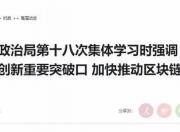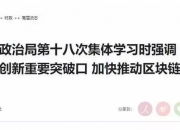2021年,“元宇宙”概念成为全球热点,其本质是利用科技手段形成与现实世界相互映射与交互的虚拟世界。早在2008年,我国著名管理学家和经济学家、中科院虚拟经济与数据科学研究中心虚拟商务研究室创始人成思危先生就开创性地提出“虚拟商务”的理论思想,希望通过实体经济的虚拟呈现以及虚实相生融合运行,实现传统行业和实体经济的转型升级,促进国民经济的健康发展。虚拟商务理论中的“虚实相生”理念,对于我们今天更好理解“元宇宙”带来不少启示。
In 2021, the concept of a meta-cosm became a global hotspot, and its essence was to use scientific and technological means to create a virtual world that is interactive and interactive with the real world. As early as 2008, our famous management and economists, and the founder of the Virtual Business Research Centre for Virtual Economics and Data Research at the Chinese Academy, Mr. Shinsaku, pioneered the theory of “virtual commerce” in the hope that the transformation of the traditional industry and the real economy could be upgraded and the healthy development of the national economy could be promoted through the virtual presentation and virtual integration of the real economy.
“虚拟商务”的实质,就是利用云计算、物联网、大数据、虚拟现实等一系列先进技术,对人流、物流、资金流、信息流等实体经济活动全过程虚拟化,在线运行并集成优化。“虚拟商务”理论中建设全链条的虚拟空间并利用数据反哺和拓展生产与流通服务的思想,与元宇宙的相关理念有着异曲同工之妙。根据“虚拟商务”理论,实体经济的发展主要依赖科技进步和需求推动,同时,环境变化也对这个进程产生加速或减缓的影响。科技进步是发展的支撑条件,以互联网为代表的信息技术的出现催生了电子商务以及后来的物联网;而人们的基本需求则是社会和经济发展的原始动力,既包括从物质到精神的消费需求,又包括人与人之间构成的价值准则认同的社会性需求,人与资源之间生产和分配准则认同的经济性需求,以及人与国家之间秩序认同的政治性需求。文化、经济和政治各个层面的制度改善和几乎所有学科的发展都需要长期的投入,这就与人们容易关注短期成效之间构成了矛盾,而基于新兴技术构造虚拟空间,在其中进行模拟、实验、优化、验证等,就为这个矛盾提供了一种解决方案,在设施建设、生产、商品流通、消费和休闲服务等经济活动以及科学发展、社会制度进步等领域,也提供了一种可能。
The essence of 更具体而言,考虑到技术支撑、需求推动和环境变迁的限制,虚拟商务理论中的“虚实相生”理念演化进程分为三个阶段: More specifically, given the limitations of technology support, demand-driven and environmental change, the process of evolution of the “virtuality” concept in the virtual business theory of 第一阶段,虚实世界主要包含了C(消费者)、B(企业)和G(政府)三个元素,这个阶段虚拟空间的主要展示形态就是电子商务、移动商务、电子政务和移动政务等,包括在线定制、出售、购买各种商品服务,以及提供和获得政府部门的公共服务等。 The first phase of 第二阶段,B和G在一定程度上合并在一起,构成了机构(B/G),比如部分原本由政府提供的服务,也可以在企业的虚实渠道上加载,以更高效率、更低成本和更好体验提供服务。同时,C端需求提升,在传感、AI、VR等技术支撑下,物体作为一个独立的角色出现在这个虚实世界中,具备了一定智慧能力的物体将在生产、流通、决策等多个环节一定程度上取代人类的能力,从而出现一个全新的由物体和人类组成的虚实生态系统,虚拟空间和现实空间的互联互通进一步加深,甚至出现了相当部分的人群在虚拟空间可以进行生产和工作等经济活动,某种意义上也拓展了人类的生存空间。 The second phase of 第三阶段,随着技术的持续进步,物体向智能体不断进化,和关联环境因素结合,成为S(智慧空间,Smart Space),形成了由C、B/G和S构成的虚拟和现实互通的全新世界。在这个阶段,人文、哲学、科学等层面都可以在虚拟世界进行模拟和实验,并投影到现实世界,帮助人类实现飞跃式发展。 At this stage, the human, philosophical, scientific and other dimensions can be simulated and tested in the virtual world and project to the real world to help humanity to leapfrog. 区块链、人工智能、脑机互联等新兴技术理念的迭代发展,加速了虚拟商务理论演绎的各种实体经济系统发展猜想的落地实践。一方面,从文本、图片、音视频、感知到虚拟现实,加上物流、信息流、资金流等供应链体系在时空两个维度的不断折叠加速,实体经济从劳动要素转换为产品的生产环节、产品走向交换的流通环节以及后端的消费环节,各种信息不对称的阻力将大幅度降低,成本、效率、质量、服务等再次跃升,随之而来的是全新的生产、销售模式和商业形态;另一方面,新的信用机制和交易模式也将带来生产、流通和消费的颠覆性机制变革,虚拟和现实不断交融,需求、搜索、体验、物权、购买、认证、使用等商业过程将被重新定义,并将诞生虚实相生的全新商业机制以及新的经济和文明系统,赋予生产、流通和消费更多的意义。 The iterative development of emerging technological concepts such as block chains, artificial intelligence, brain interconnectedness, and so forth, has accelerated the development of surrogate practices in the various real economic systems that have evolved from virtual business theory to virtual reality. On the one hand, the convergence of supply chain systems such as text, pictures, audio-visuals, perceptions, and logistics, information flows, capital flows, etc., has accelerated in both temporal and temporal dimensions. On the other hand, the transformation of the real economy from labour factors to production, product-to-exchange flows and back-to-back consumption links will be redefined, and the resistance of information asymmetries will be substantially reduced and costs, efficiency, quality, services, etc. will rise again, with new production, marketing and business patterns; on the other hand, new credit mechanisms and trading patterns will bring about disruptive institutional changes in production, circulation and consumption, virtual and reality will continue to converge, commercial processes such as demand, search, experience, property rights, purchase, certification, use, etc., will be redefined and new business mechanisms and new systems of economy and civilization will give greater meaning to production, circulation and consumption. 总而言之,随着新技术的发展,全新的商业模式将逐步被消费者所接受,生产、流通、消费机制和场景模式也将不断革新。此外,虚拟商务还将立足经济系统的不断改善,带动社会和人文等多个层面的持续进步和发展。 In sum, with the development of new technologies, new business models will gradually be accepted by consumers, as will production, circulation, consumption mechanisms, and landscape models. In addition, virtual commerce will be built on the continuous improvement of the economic system, leading to sustained progress and development at many levels, such as society and humanity. (作者分别为中国科学院虚拟经济与数据科学研究中心副研究员、复旦大学管理学院教授) ( author: Associate Researcher at the Virtual Economics and Data Research Centre of the Chinese Academy of Sciences and Professor at the School of Management of the University of Gangdan ) 转载请注明来源“上观新闻”,违者将依法追究责任。 (本文仅代表作者个人观点。栏目邮箱:shhgcsxh@163.com)
注册有任何问题请添加 微信:MVIP619 拉你进入群

打开微信扫一扫
添加客服
进入交流群





















发表评论